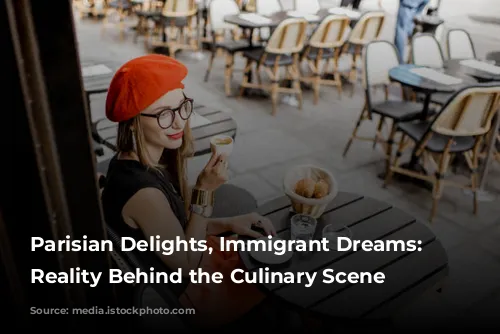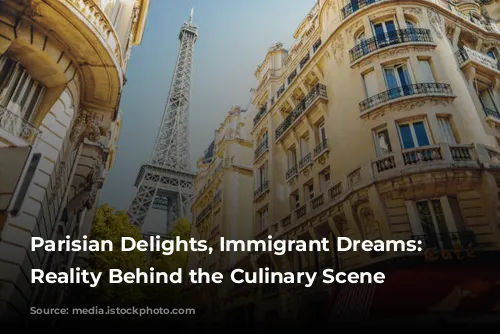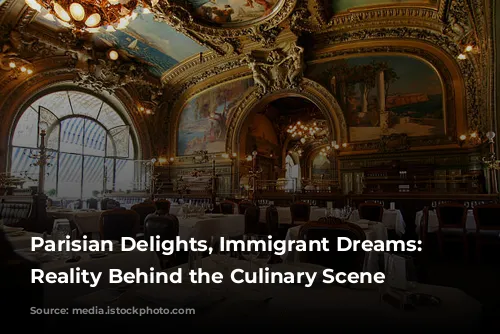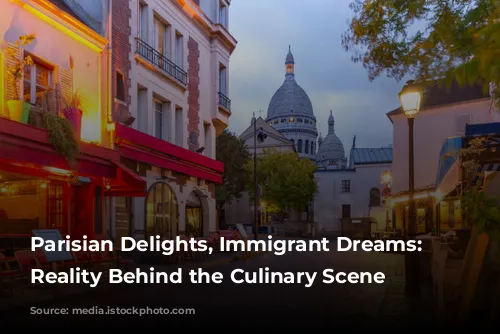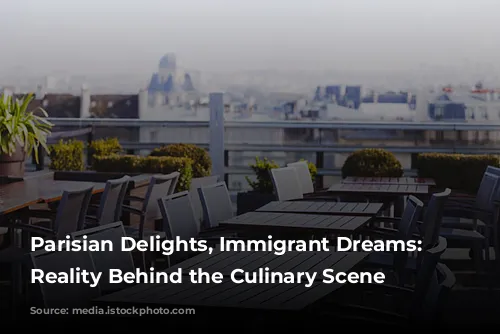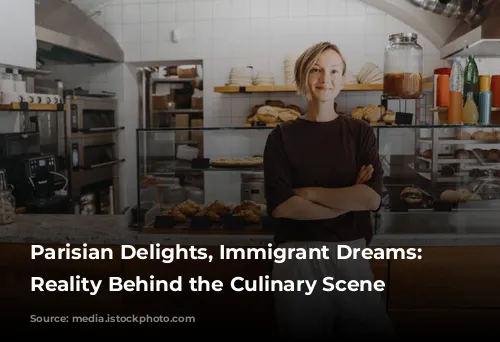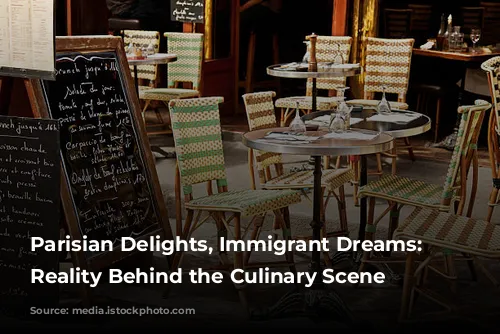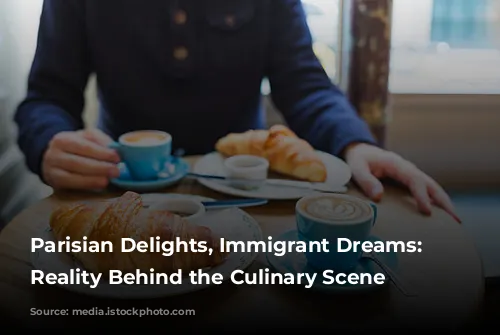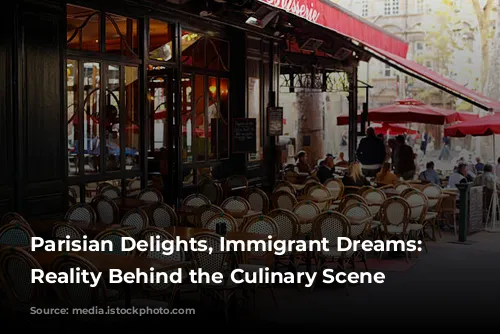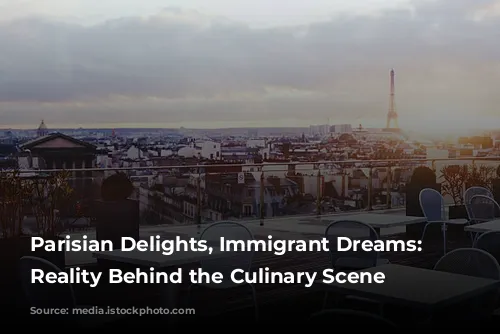The bustling terrace of Le Pinardier, a charming bistro on the renowned Rue Bretagne, is a quintessential Parisian experience. Amidst the clinking of glasses and the aroma of fresh bread, diners savor the best of French cuisine, indulging in the local wines and delectable charcuterie. However, behind this idyllic scene lies a complex reality, one that is intrinsically linked to the very issue that is currently dividing the nation: immigration.
The Hidden Hands of French Gastronomy
While patrons bask in the Parisian sunshine, the heart of Le Pinardier beats in the kitchen, where a young chef named Sazal Saha tirelessly orchestrates the culinary symphony. Hailing from Bangladesh, Saha arrived in France five years ago, his passion for cooking ignited by the vibrant culinary landscape he encountered. His journey began with rigorous training at the Joliet-Curie School in northern France, and now he stands as the sole maestro in the kitchen, his hands adept at every task from sourcing fresh produce to the final flourish of plating.
Saha’s dedication and skill are not unique; they reflect a larger truth about French gastronomy. Across France, particularly in Paris, the hospitality industry relies heavily on immigrant workers. The kitchens of countless restaurants are fueled by the talents of individuals like Saha, individuals who bring their unique skills and cultural influences to the French culinary scene.

A Culinary Workforce Under Pressure
In a revealing statistic, roughly 25% of France’s cooks are immigrants from outside the European Union. This trend is particularly prominent in Paris, where half of the city’s chefs are immigrants, forming the backbone of the city’s gastronomic landscape. They are the unsung heroes, feeding and delighting tourists from all corners of the globe.
However, this reliance on immigrant labor faces a growing challenge. In the recent parliamentary elections, anti-immigration sentiment gained momentum, propelled by the far-right National Rally party. The party’s “France first” agenda advocates for stricter immigration control and prioritizes French citizens in the social welfare system.
A Personal Perspective
Sazal Saha, like many of his colleagues, finds himself caught in the crossfire of this political debate. He worries about the potential impact of stricter immigration policies on his future in France, a country he has come to love and call home. Saha’s anxieties are echoed by Florian Mousson, the owner of Le Pinardier, who acknowledges the crucial role of immigrant workers in his business. He understands the arduous nature of the kitchen work and the growing reluctance of French people to take on these demanding roles.
Mousson emphasizes that hiring immigrants is not simply about cost-effectiveness, but about the reality of the situation. He candidly states that for every French applicant for a chef position, he receives eight to nine applications from foreign candidates. This disparity reflects a larger trend, highlighting the essential role that immigrants play in filling the gap in the French culinary workforce.
Despite the challenges, Saha remains optimistic, drawing strength from his passion for his craft and his desire to build a life in France. He finds solace in his contributions to the vibrant culinary scene, a scene that is as much a reflection of his own journey as it is of the rich history of French gastronomy.
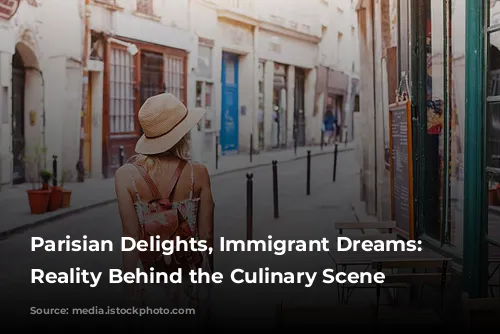
The Future of French Cuisine
As the political landscape evolves in France, the question remains: what will become of the culinary landscape that so many rely on? Will the intricate tapestry of flavors and traditions be preserved, or will it be irrevocably altered by shifting demographics and political winds? The answer, ultimately, lies in the hands of the people and their willingness to embrace a future where diversity is not just a reality but a source of strength.
